Apple's high-end pro market has long wished for a seriously fast Mac workstation. The premium new system Apple debuted at WWDC19 is one of the most expensive Macs ever, but it is being sold at a time when unit sales of desktop Macs are small and not really growing. Will Apple have to brainwash the masses to buy it?
The flawgic behind Apple's billion brainwashings
Previous segments looked at how Apple plans products and builds them. Here, examine the criticism that Apple brainwashes the world to pay too much for its products.
It's common to hear that Apple's global sales — at Average Selling Prices that are often several times that of its rivals — are just a matter of the company being able to fool people into thinking that they need something that is wildly overpriced and should actually be half the cost, and really should have been delivered two years ago.
A couple of decades ago, this idea would be a little easier to swallow. Apple once had— much like Microsoft Surface or Google Pixel today— a tight, cult-like following of a few million people, mostly in the U.S., who paid a premium for a brand that they had an emotional relationship with. Calling them "brainwashed" was an excessive pejorative, but they were not representative of the masses.
Today, more than half of the active mobile activity in the U.S., Japan, and other affluent Western countries comes from iOS. Apple's billion and a half active devices in use very much do represent mainstream consumers. If you're more popular than a religion, you're not a religion.
Apple's minimal ad budget
Apple has frequently won awards for its marketing, most recently 2019 Creative Marketer of the Year from Cannes Lions International Festival of Creativity. But while many of Apple's ads have been iconic, memorable, or even tear-jerking, they haven't necessarily pushed significant numbers of people to buy a specific product with obvious impact.
Last year's critically acclaimed Spike Jonze spot promoting HomePod didn't immediately turn Apple into the leading speaker vendor or convince Alexa and Assistant buyers to pay for a premium speaker rather than a accept a much cheaper loss leader microphone. The four minute ad was more of a work of art than overtly messaging. Viewers might easily have mistaken it for an FKA Twigs video than even being aware that it was selling a new home speaker product.
Similarly, Apple's most famous ad ever— perhaps the most famous ad ever— the 1984 Super Bowl spot introducing Macintosh, was talked about incessantly, but didn't coincide with Macs flying off the shelf. Macintosh sales didn't gain traction until a couple of years later when it started to become apparent that desktop publishing was a valuable new capability and that Macs were exceptionally good at graphic design and printing with LaserWriter fidelity. Then as now, the main thing driving ongoing Mac sales is "customer sat" not advertising.
Apple's supposedly brainwashing ad budget is a fraction of Samsung's. It also comes up less than most other advertisers, including Microsoft— which spent billions on ads trying to sell products like Windows Phone and Surface. Google leveraged its prime search engine real estate to push Pixel, and drove Pixel fire sale ads across billions of empty display ad inventory, all quite ineffectually.
It is worth noting that much of the advertising for the iPhone isn't Apple's. Billboards and print ads for iPhone are often paid for by mobile carriers, who are contractually obligated to place ads to sell Apple's hardware.
Apple has also long leveraged other forms of free advertising, ranging from prop product placement in TV shows and movies to the company's keynotes and events, which grab and retain the interest of the media unlike anyone else's. Apple's recent advertising is largely just product recognition. Apple rarely runs ads comparing its features to the competition, or even explaining what its products do.
The free market ignores being told what to do
We have a pretty good system for democratically evaluating and voting for corporate winners with our dollars. That free-market system has consistently awarded Apple with the most global profits around the world for many years now.
There is also a broad and deep media network of bloggers from Engadget and the Verge, along with various newspapers who have hired their former employees. They are all consistently contradicting, in unison, the choices of billions of people making their own independent purchasing decisions.
Customers are deluged with online editorial content from high power content outlets like Vox Media and Fox Corp., which has long and consistently insisted that "Android is winning," while regularly and stridently advocating that people buy Google Pixel phones, Microsoft's Surface PCs, and Samsung Galaxy products, and to please delay buying the next iPhone because, as they've recently started repeating in suspiciously creepy unison, everyone should be happy sticking with their iPhone 6s.
If media brainwashing were a thing, it should be apparent outside the comments section of The Verge articles, out in the global market for hardware. Yet neither these bloggers nor the ad network that monetizes them have been able to convince any commercially significant number of people to buy what they endorse, nor have they been unable to stop the masses from wanting more gear from Apple.
Think of all the invented crisis panics and attempts to impeach Apple with allusions to Watergate: antenna-gate, bend-gate, beauty-gate. These did confuse and mislead some people, but they had no apparent impact on Apple's success in leading the market.
Conversely, Apple has also on many occasions tried to sell things that just never found an audience, and its advertising was unable to make a difference. Steve Jobs once tried valiantly to sell Xserve to corporate users. Apple has created everything from Aperture software, to a solid gold Apple Watch, to AirPort routers, to consumer monitors, to the canister Mac Pro from 2013. It has found that some of its products just won't sell in enough quantity to sustain their continued production no matter how great it's advertising.
The last Mac Pro was cinematically, bombastically advertised in movie theaters, but individuals weren't turned into zombies that dutifully marched out to buy it.
That tells us that if the new 2019 Mac Pro is going to remain in sustained production going forward, it will need to find a real audience willing and capable of paying for it. Or, alternatively, that Apple will subsidize its production for a strategic benefit.
Fairy tale journalism is just entertainment
Reading the work of bloggers, newspaper columnists, and the comments of their readers, it's pretty clear that virtually all of them actually believe that product development at Apple consists of its chief executive sitting on a royal throne of technology where inventors, brought in from all across the land, approach him and show off their new product ideas with the hope that His Executive Highness will snap his fingers and decree that factories in China will begin building this new thing and that Apple's legions of copywriters will set to work crafting their enchanting spells that convince everyone in the global Apple kingdom to go out and buy it.
That explains why they keep repeating the idea that Apple is "out of innovation," or worry that some slip-up in marketing— or a carefully coaxed "crisis-gate" story— will perhaps break the spell and cause everyone to wake up and instead buy a cheaper copy from the same factory but branded "Huawei."
It also explains why they often conclude that perhaps Apple's real problem is Cook himself, and that the company desperately needs a new comic book caricature of an Executive Decision Maker who more closely resembles Tony Stark in his ability to dazzle on stage with cinematic applause lines and blue steel charisma while introducing some new exciting invention from China that magically activates everyone's salivary glands and vibrates their wallet.
If that sounds like an exaggeration of the tech media's juvenile depiction how Apple delivers its new products, consider that in just the last year, the Wall Street Journal paid Tripp Mickle to publish his weirdly fantastical account of Jony Ive's design group at Apple, which read as if it was seeking to conjure up the mystique of The Dark Crystal within the broad strokes of a superhero graphic novel.
It told the story of Apple as a lost company that has only been sleepwalking through its decade under Cook as the magical fairy dust of the late Steve Jobs evaporated away, with only Ive, "the living embodiment of his spirit," holding back the inevitable collapse of the cursed Apple universe.
Mickle cartoonishly sketched out that Apple's design — copied around the world — had grown "rudderless, increasingly inefficient, and ultimately weakened," and fabricated tales of epic executive schisms "eroding the product magic created by Mr. Ive and the late Steve Jobs." His virtual all-caps narration panel worried that Apple's board has been "increasingly populated by directors with backgrounds in finance and operations rather than technology," a notion that would only be believable to a child huddled in a sleeping bag, sounding out the words accompanying dramatic pictures in a ten-cent comic book.
Yet rather than being summarily laughed at by industry observers— apart from Neil Cybart of Above Avalon, who tweeted that the piece "literally" made him laugh out loud — Mickle's fictional tale of spirits, magic, and board members who offer technology advice was greeted with the thunderous, thumping applause of bloody stumps from the same people who spent the first half of 2019 clapping their hands off for the Samsung Galaxy Fold while purporting it to be the embodiment of "innovation" and a pinnacle of captivating product management, agreeing amongst themselves that Apple should really be paying attention and taking notes. Where is Apple's folding phone-tablet!?
And while Cook wasted no time dismissing Mickle's entire piece as simply being "absurd," bloggers who generally get Apple wrong nodded along with the Wall Street Journal as if it were a serious piece of thoughtful journalism.
Brian X. Chen, the blogger who made up sources and falsely attributed his own opinions to other people in his Wired article claiming that Japan "hated" iPhone, tweeted that he preferred to believe Mickle and was "not convinced" by Cook's statement. He now writes for the New York Times, where he recently turned in a review for iPhone 11 that was so bitter that John Gruber of the Daring Fireball described as sounding like a "mindless dogmatic crusade" rather than a product evaluation.
Dieter Bohn of The Verge tweeted that Mickle's piece on Ive was an "absolute must-read." His colleague Tom Warren called it "spot on," while Nilay Patel blasted contempt for "professional Apple apologizers" and pointed out that Apple didn't give a statement to Mickle.
Another writer at the same site actually wrote that Mickle's claim that Cook "showed little interest in the product development process" would "help to explain" why Cook "sometimes appears to be seeing products for the first time in the hands-on area after Apple events," referencing a photo of Cook and Ive (below) looking at a Mac Pro at the WWDC19's studio area showing off the new hardware.
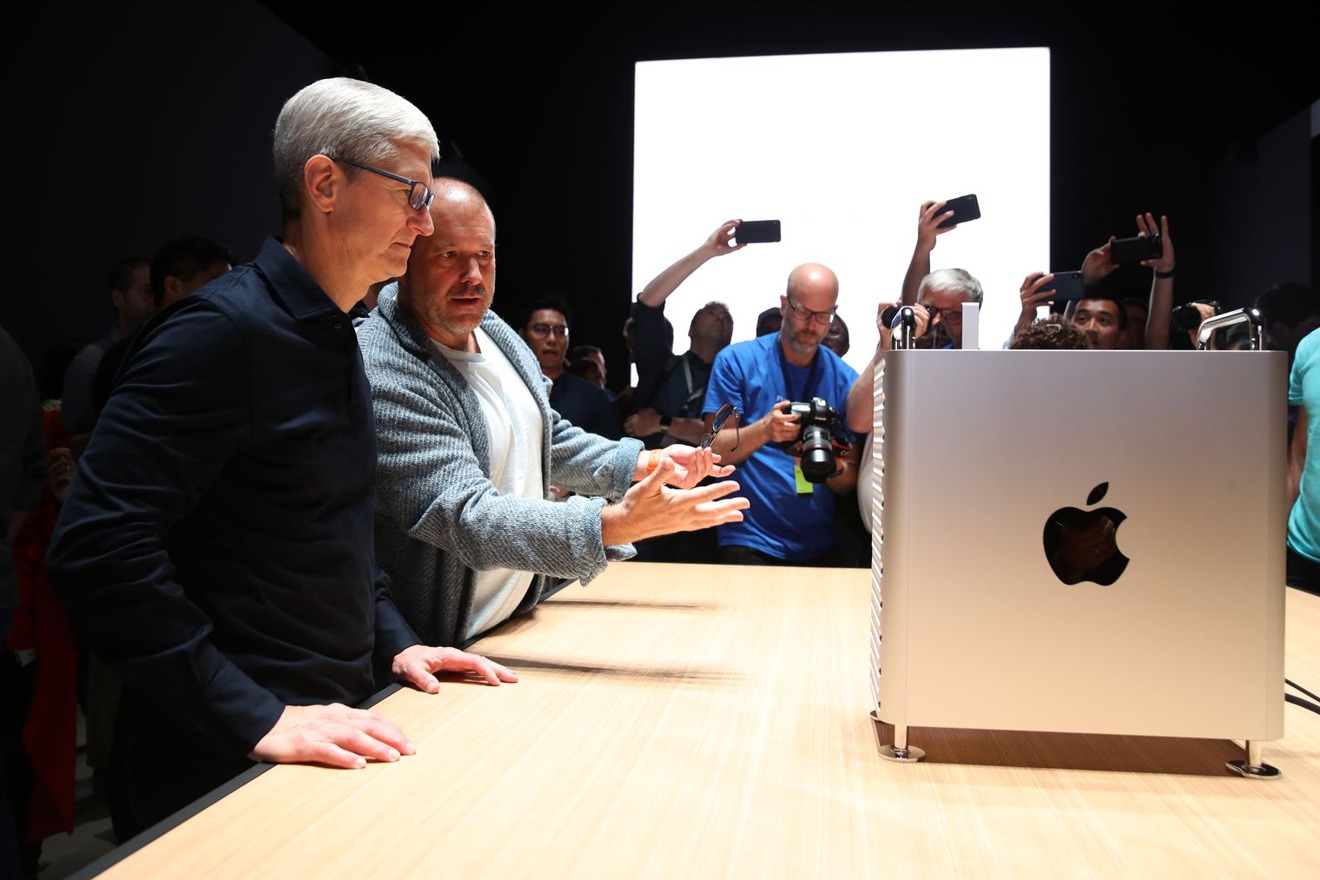 The Verge cited this photo by Justin Sullivan/Getty Images as evidence that Cook was so disinterested in Apple products that he appeared to be seeing the Mac Pro for the first time in the hands-on area, hours after he introduced the machine on stage.
The Verge cited this photo by Justin Sullivan/Getty Images as evidence that Cook was so disinterested in Apple products that he appeared to be seeing the Mac Pro for the first time in the hands-on area, hours after he introduced the machine on stage.Despite some ambitious completion, that remains the stupidest line I have read this year. Cook introduced the machine on stage in its keynote address!
And far beyond that, Apple didn't come up with the design for the new Mac Pro because Cook saw somebody's blog or read an email begging for a high-end workstation and then decided on a whim to invest billions of dollars into the multi-year strategies that resulted in the new hardware.
I think I know what drove Apple to embark upon building a fantastically fast, powerful, and expensive new Mac Pro, and I'll outline that thinking in the next segment.
 Daniel Eran Dilger
Daniel Eran Dilger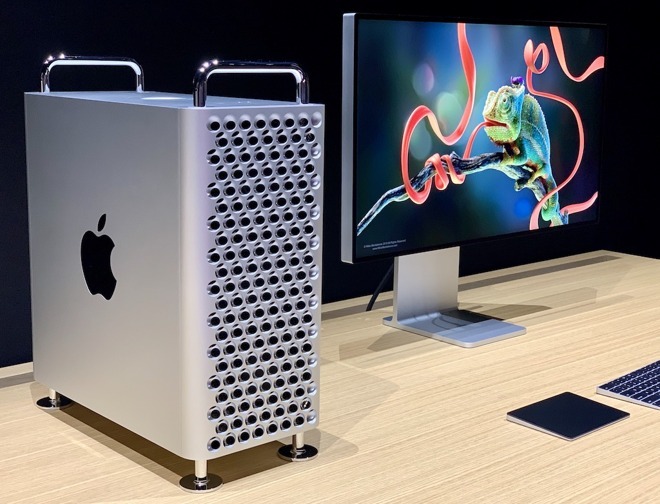

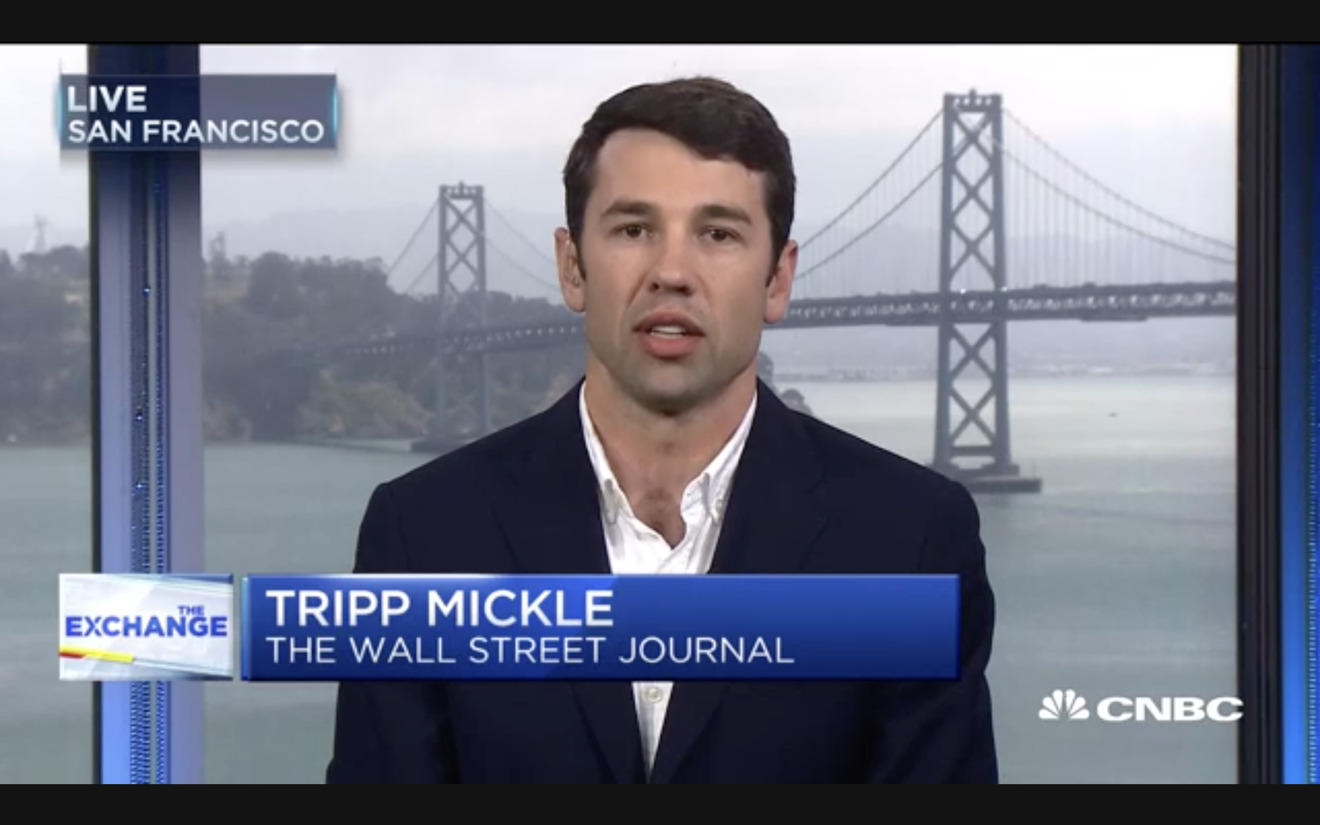




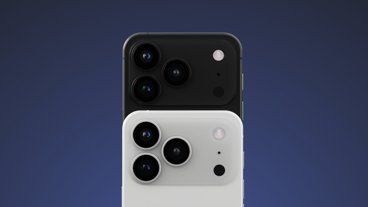
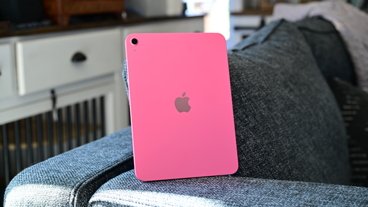

-m.jpg)





 Bon Adamson
Bon Adamson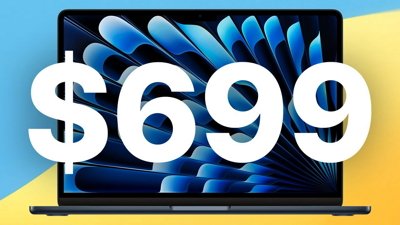
 Christine McKee
Christine McKee
 Amber Neely
Amber Neely
 Wesley Hilliard
Wesley Hilliard
 Marko Zivkovic
Marko Zivkovic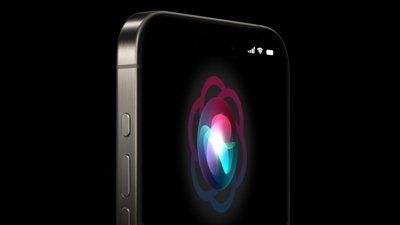
 Malcolm Owen
Malcolm Owen
 William Gallagher
William Gallagher
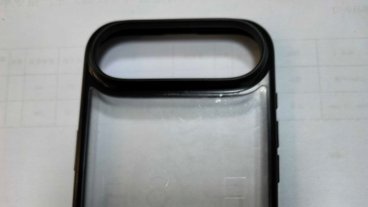
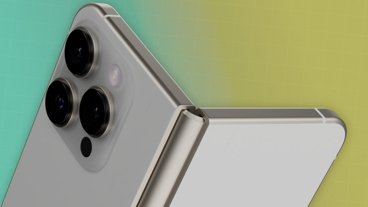
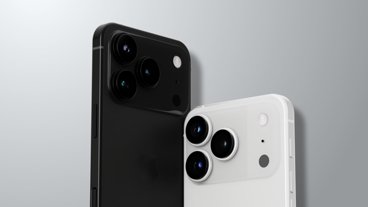






171 Comments
Haha, love seeing to stupid comments from the anti-Apple brigade.
So, just Color me 'brainwashed' I'm getting one. I see it as a great design, priced correctly (try comparing a high-end gaming machine from the PC world) and my only comment is Apple could make a prosumer version at half the price with half the power and sell them like hotcakes to well ... prosumers.
It's not a computer for the masses and no amount of brainwashing could change that.
At the same time it's gonna appeal to a certain segment of buyers who have needs for intense video processing or scientific applications, or a few who purchase it "just because it exists".
I don't care about the masses. I only know that I can't wait to buy this computer and look every day to see when it will be for sale.